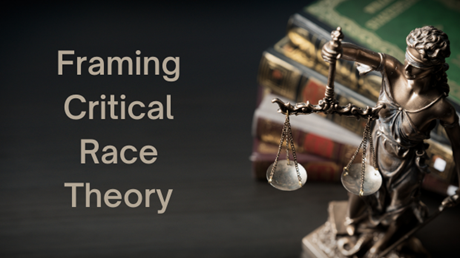The first of three posts on Dr. Sawyer's thoughts and concerns about CRT.

As a faculty member in the social sciences in a state institution, critical social theory (CST) is the water I swim in, the air I breathe. As an academic and conscientious Christian, justice concerns drive much of my scholarship and all of my praxis (activism). Consequently, critical race theory (CRT), a prominent critical social theory concerned about racial justice, has a place in my teaching, scholarship, and praxis. I say this to underscore that while this series will be net critical of CRT, that doesn’t mean that CRT has nothing to offer to social analysis and that some of its insights aren’t genuinely instructive when it comes to our racial history in the U.S and our current racial zeitgeist. Indeed, some aspects of CRT are notably discerning and percipient. It is an injustice to truth to deny this or act otherwise. Please keep this in mind as you move through my analysis.
In this article I want to give an overview of CRT and mention some of its unifying ideas. In the second article, I’ll offer five important cautions relative to how its claims can be received and embraced. In the final article, I’ll offer three more cautions, a salient concluding point, and a final exhortation.
Before I move into an overview of CRT, I want to make a final point by way of introduction. Where there is disagreement about CRT in the professed Church, we should make every effort to ensure there is no hateful speech, no ad hominem attacks, and no slander. The nuance and care needed with this topic should underscore the importance of sticking close to Christ’s commands regarding our speech and how we communicate with one another (Matt 12:36-37; Eph 4:15, 29-31; Col 4:6; 2Tim 2:24-25). In many respects, the Enemy ...
from Christianity Today Magazine
via


.gif)

.gif)
.gif)
